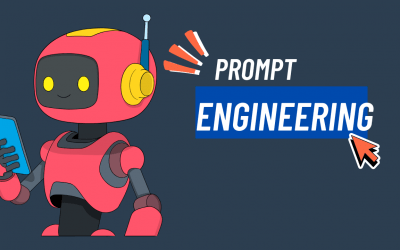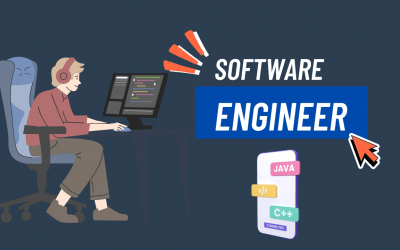Introduction to TypeScript Online Learning
TypeScript has revolutionized JavaScript development by introducing static type checking and enhanced tooling capabilities. The proliferation of online resources has democratized access to TypeScript education, enabling developers worldwide to master this superset language without traditional classroom constraints. Modern web-based learning environments offer unprecedented flexibility for both novice programmers and seasoned professionals seeking to augment their skillsets.
The digital landscape provides myriad pathways for TypeScript mastery. Online platforms eliminate geographical barriers while offering real-time compilation feedback and interactive coding experiences. These resources cater to diverse learning preferences, from visual learners who benefit from video tutorials to kinesthetic learners who prefer hands-on coding exercises.
Contemporary TypeScript online education encompasses immediate feedback mechanisms, collaborative coding environments, and comprehensive documentation repositories. This accessibility revolution has transformed how developers approach language acquisition, making sophisticated programming concepts more approachable than ever before.
Essential TypeScript Online Playgrounds and IDEs
TypeScript Playground Features
The official TypeScript Playground represents the quintessential online development environment for experimentation and prototyping. This browser-based IDE provides instantaneous transpilation from TypeScript to JavaScript, allowing developers to observe compilation results in real-time. The playground’s sophisticated intellisense capabilities mirror those found in desktop IDEs, delivering autocomplete suggestions and error highlighting without requiring local installations.
Advanced configuration options within the playground enable developers to experiment with different compiler settings and target ECMAScript versions. The shareable URL functionality facilitates collaborative debugging and code review processes. These features make the playground invaluable for rapid prototyping and educational demonstrations.
Cloud-Based Development Environments
Modern cloud IDEs like CodeSandbox, StackBlitz, and Repl.it have transformed TypeScript development accessibility. These platforms provide full-featured development environments with integrated terminal access, package management, and deployment capabilities. StackBlitz’s WebContainer technology enables Node.js execution directly within browsers, eliminating traditional server-side dependencies.
CodeSandbox excels in framework integration, offering pre-configured templates for React, Angular, and Vue.js projects with TypeScript support. The collaborative editing features enable real-time pair programming sessions across geographical boundaries. These environments significantly reduce project setup overhead while maintaining professional development workflows.
Browser-Based Compilation Tools
Sophisticated browser-based compilers have emerged to support complex TypeScript projects without local toolchain requirements. These utilities provide advanced bundling capabilities, module resolution, and dependency management through intuitive web interfaces. The integration of Monaco Editor in many platforms delivers VS Code-like editing experiences directly within browsers.
Performance optimizations in modern browsers enable near-native compilation speeds for medium-sized TypeScript projects. Service worker implementations provide offline development capabilities, ensuring uninterrupted coding sessions regardless of network connectivity. These innovations have made browser-based development a viable alternative to traditional desktop environments.
Comprehensive Online Learning Platforms
Interactive Tutorial Websites
Interactive learning platforms like FreeCodeCamp, Codecademy, and TypeScript Deep Dive provide structured curricula with hands-on exercises. These platforms employ progressive complexity introduction, beginning with fundamental type annotations and advancing toward sophisticated generic implementations and conditional types. The gamification elements maintain learner engagement through achievement systems and progress tracking.
Execute Program offers a unique spaced repetition approach to TypeScript education, reinforcing concepts through periodic review exercises. The platform’s micro-lesson format accommodates busy professional schedules while ensuring comprehensive knowledge retention. Interactive code challenges simulate real-world development scenarios, bridging the gap between theoretical understanding and practical application.
Video-Based Learning Resources
YouTube channels, Udemy courses, and platform-specific video tutorials cater to visual learners seeking comprehensive TypeScript instruction. Content creators like Ben Awad, Traversy Media, and The Net Ninja produce high-quality educational content covering everything from basic syntax to advanced architectural patterns. These resources often include downloadable source code and accompanying exercises.
Premium platforms like Pluralsight and egghead.io offer professionally produced courses with structured learning paths. The bite-sized video format enables flexible learning schedules while maintaining educational continuity. Closed captioning and variable playback speeds accommodate diverse learning preferences and accessibility requirements.
Documentation and Reference Materials
The official TypeScript documentation serves as the authoritative reference for language features and best practices. The handbook’s comprehensive coverage includes detailed explanations of complex topics like mapped types, template literal types, and declaration merging. Interactive examples within the documentation enable immediate experimentation with presented concepts.
Community-maintained resources like TypeScript Cheatsheets and awesome-typescript collections aggregate valuable learning materials and tools. These curated repositories save developers significant research time while ensuring access to high-quality, vetted resources. Regular community contributions keep these collections current with language evolution.
TypeScript Online Tools and Utilities
Type Definition Managers
DefinitelyTyped represents the largest repository of TypeScript type definitions for JavaScript libraries. The online interface enables developers to search, browse, and understand type definitions before integration into projects. The @types npm scope provides seamless installation of community-maintained declarations for popular libraries.
TypeSearch offers an intuitive web interface for discovering and evaluating type definitions. The platform displays download statistics, maintenance status, and compatibility information to guide developer decisions. These tools eliminate guesswork when selecting appropriate type definitions for third-party dependencies.
Configuration Generators
TSConfig.json generators simplify TypeScript project configuration through user-friendly web interfaces. These tools provide explanatory tooltips for compiler options while generating optimized configurations for specific use cases. The visual approach reduces configuration errors and accelerates project initialization.
Specialized generators for frameworks like React, Node.js, and Vue.js provide opinionated configurations aligned with community best practices. These tools incorporate lessons learned from thousands of projects, delivering battle-tested configurations that minimize common pitfalls and optimize development workflows.
Debugging and Testing Platforms
Online TypeScript testing environments enable comprehensive code validation without local setup requirements. Platforms like CodePen and JSFiddle support TypeScript compilation with popular testing frameworks like Jest and Mocha. These environments facilitate test-driven development practices and collaborative debugging sessions.
Advanced debugging tools integrated into cloud IDEs provide breakpoint management, variable inspection, and call stack analysis. The browser-based debugging experience rivals traditional desktop IDEs while offering superior sharing and collaboration capabilities. These tools have democratized access to professional debugging workflows.
Community Resources and Support Networks
Forums and Discussion Boards
Stack Overflow remains the primary destination for TypeScript-related technical questions and solutions. The platform’s comprehensive tagging system enables efficient problem categorization and solution discovery. The community’s collective knowledge base addresses everything from beginner syntax questions to advanced type system challenges.
Reddit’s r/typescript community fosters discussions about language evolution, best practices, and ecosystem developments. The platform’s voting mechanism surfaces high-quality content while enabling community-driven curation. Discord servers and Slack workspaces provide real-time communication channels for immediate assistance and collaborative problem-solving.
Open Source Projects and Repositories
GitHub hosts thousands of TypeScript projects that serve as learning resources and contribution opportunities. Popular repositories like TypeScript itself, DefinitelyTyped, and type-challenges provide insights into advanced language usage and community practices. Contributing to open source projects accelerates learning through code review feedback and collaboration with experienced developers.
TypeScript-specific project templates and boilerplates reduce initial setup friction while demonstrating industry best practices. These repositories often include comprehensive documentation, testing strategies, and deployment configurations that serve as educational resources beyond mere starting points.
Professional Development Communities
Professional networks like LinkedIn groups and specialized Discord servers connect TypeScript developers across experience levels and geographical regions. These communities facilitate knowledge sharing, career advice, and collaboration opportunities. The diversity of perspectives enriches learning experiences while building valuable professional relationships.
Conference recordings and virtual meetups provide access to cutting-edge TypeScript developments and expert insights. Platforms like YouTube and Twitch host live coding sessions where experienced developers demonstrate real-world problem-solving approaches. These resources offer unique learning opportunities that traditional educational materials cannot replicate.
The TypeScript online ecosystem continues evolving rapidly, driven by community contributions and technological advancements. Staying current with these resources ensures developers maintain competitive skills while contributing to the language’s continued growth and adoption. The accessibility and quality of online TypeScript resources have transformed how developers approach learning, making expertise more attainable than ever before.
Other Articles
The Art and Science of Prompt Engineering: Crafting the Future of AI Interaction
Beyond Keywords – Defining Prompt Engineering We stand at the precipice of a new paradigm in human-computer interaction. The rise of sophisticated Large Language Models (LLMs), such as GPT-4 and its contemporaries, has shifted our communication with technology from...
What is a Software Engineer
The Architects of Digital Reality Software engineers constitute the fundamental workforce orchestrating our technologically mediated existence. These professionals transmute abstract concepts into functional applications that permeate every facet of contemporary life....
Angular TypeScript: A Comprehensive Guide to Modern Web Development
Introduction to Angular TypeScript Integration Angular's symbiotic relationship with TypeScript represents a paradigmatic shift in modern web development methodologies. This powerful amalgamation emerged from Google's recognition that large-scale applications require...




